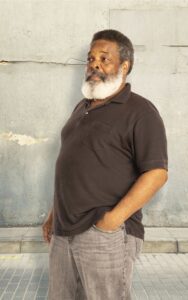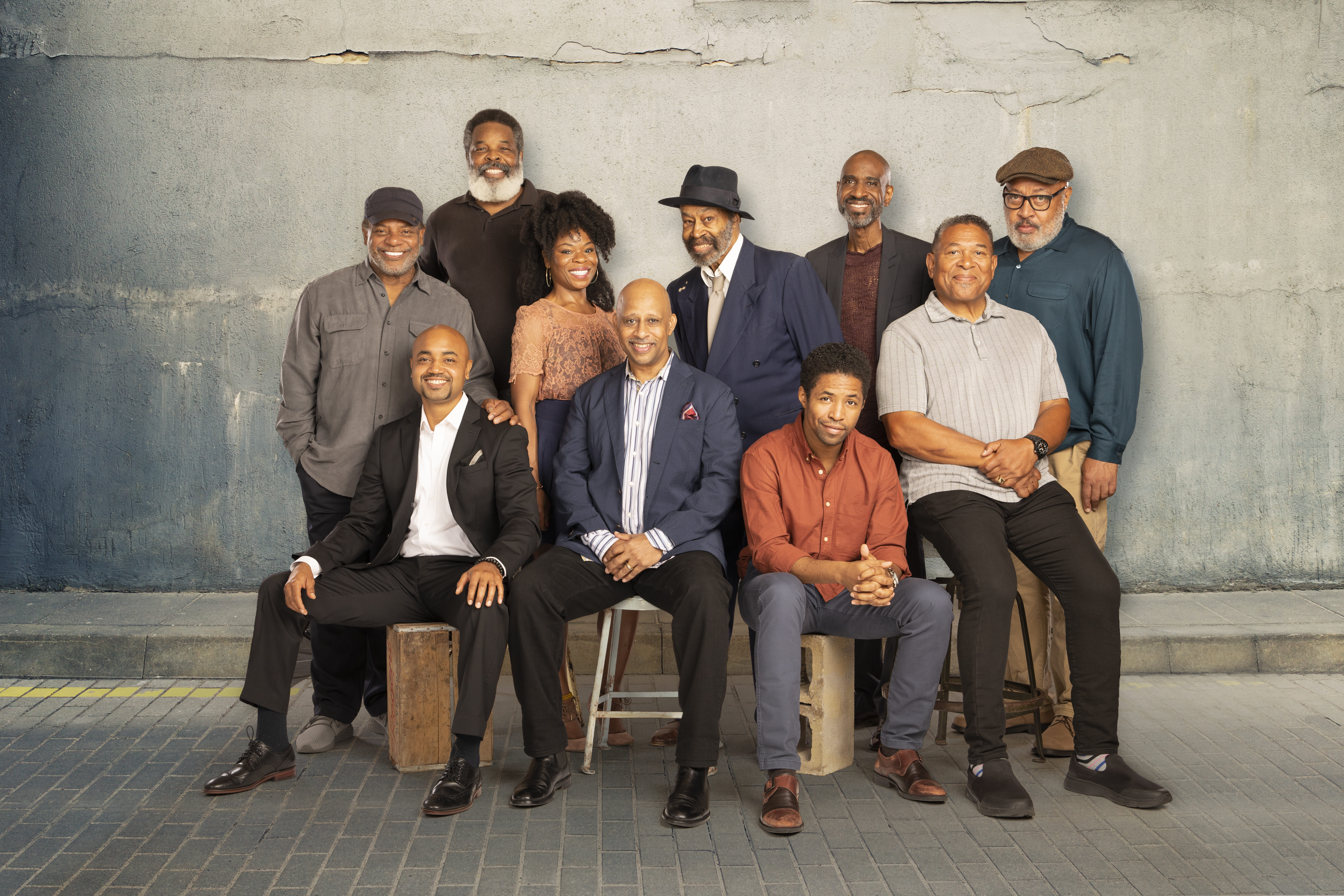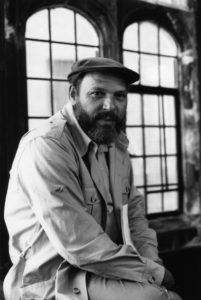He has had major stage roles in everything from The Crucible to Moscow, Moscow, Moscow, Moscow, Moscow, Moscow. He has appeared in films as different as “Isn’t It Romantic?” and “Shutter Island.”

Now Ray Anthony Thomas will be appearing at Arena Stage as Turnbo in an upcoming production of August Wilson’s Jitney, the first stop on the play’s national tour and Arena’s first production in a season-long tribute to the Pulitzer Prize-winning author.
Jitney follows a group of men trying to make a living by driving unlicensed cabs, or jitneys, in 1970s Pittsburgh. Jitney didn’t play on Broadway until 2017 – 38 years after it was written – but the 2017 production took home a Tony Award for Outstanding Revival of a Play.
Jitney is one of the ten plays in Wilson’s Pittsburgh Cycle which comprises ten plays, each set in a different decade of the 20th century and depicting comic and tragic aspects of the African-American experience.
Being in Jitney feels a little like coming home for Thomas. Having performed in six of the ten plays in the Pittsburgh Cycle, on Broadway and beyond, he knows well the language and atmosphere used in one of American theater’s great bodies of work.
Barbara Mackay: What about Jitney attracts you most?
Ray Anthony Thomas: In most of Wilson’s plays, the idea of the community is very strong. Only one of his plays – Fences – has a single lead. Most of his plays are ensemble works about community and the variety of characters in Jitney expresses that. It’s about black people’s lives and how those people cope.
Jitney addresses Pittsburgh’s period of “urban renewal” in late 1977. The city is trying to shut down businesses, including an unlicensed gypsy cab station, to make way for new buildings. What is so compelling about Wilson’s cab drivers who are struggling to exist?
It’s really their spirituality that helps these characters get through horrendous situations. No matter how bad it is, you still survive, you still love, you still have the capacity to want to help each other out. Part of it is that August gave a lot of credit to our gene pool. We’ve survived so long that it’s part of our genetics just to have our community be part of everything. My Mom used to say, “If you’re part black you belong to the black culture…if you have an ounce of black, you can come with us.” And that’s how we’ve survived all these years.

Tell me about the development of Jitney. It was written first in 1979, then rewritten, correct?
Right. It was a one-act when August first wrote it and then he re-wrote it when he was writing Seven Guitars. In fact, my understanding is that some of the things that were originally in Seven Guitars wound up in Jitney.
How do you describe Turnbo, the character you’re playing at Arena Stage?
Turnbo is one of these people who knows everybody’s business and can’t help but express that fact. He says things that maybe he shouldn’t be talking about but as he says in the play: “I got things that’s on my mind and I just say ’em.” He’s been raised by his grandmother and everything he says is seen through the prism of her eyes. He’s a curious guy. That’s why he knows so much about everybody’s business. Because he’s curious. He yearns for knowledge.
What do you think makes August Wilson stand out so clearly from other writers who have tried to describe the African-American experience?

Every word in his plays is there for a reason. He was very meticulous about what he wrote.
The first time he saw me do one of his plays, I was doing Boy Willie in Piano Lesson in Louisville. He had come down to see it because that was the first time the play had been done in Kentucky.
And did he approve of that Piano Lesson?
Yes, he ended up staying several extra days because he liked us. He said, “I’m starting to see people who are not really down with my lines, they’re paraphrasing my lines. I can’t remember every word I wrote, but I know every word I didn’t write.” It’s very important that we use the words that he wrote. August started going to different regional theaters in order to polish his plays before they would go to major commercial venues.
Do you have a particular approach to beginning a new role on the stage?
For 24 years I’ve been a member of the Atlantic Theater Company, which was started by David Mamet, a playwright. So I follow the philosophy that says you’re in service to the writing. You have to make sure the story can get told while you’re inhabiting whatever role you’re inhabiting. You have a responsibility to the lives of the people you’re trying to create off the page.
And does that approach hold when you’re doing Wilson as well?
I note that if you just say his words, that’s three-quarters of the battle. You just have to tell the truth – which means the words you’re speaking.
Jitney plays from September 13 – October 20, 2019, at Arena Stage, 1101 Sixth Street SW, Washington, DC. For tickets, call 202-488-3300 or go online.




